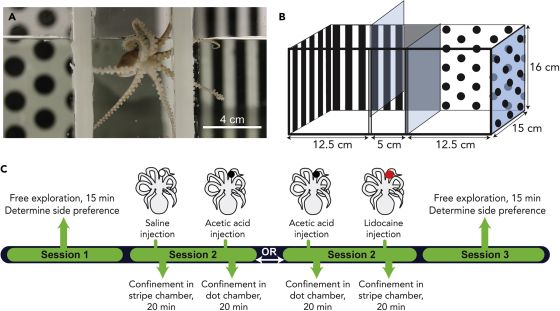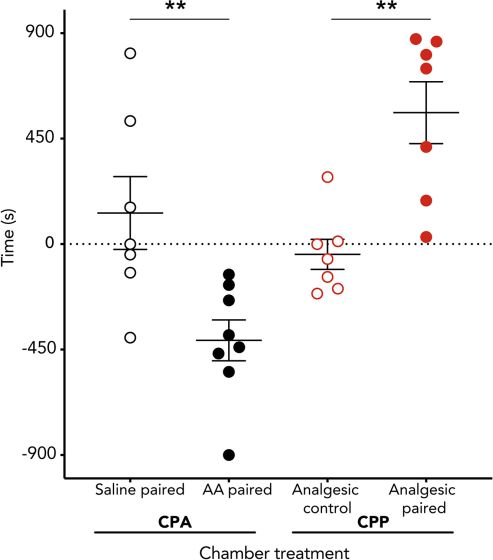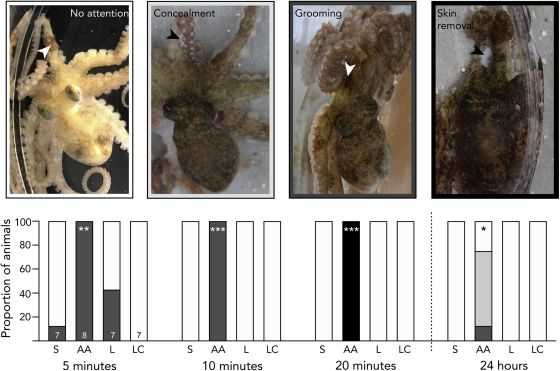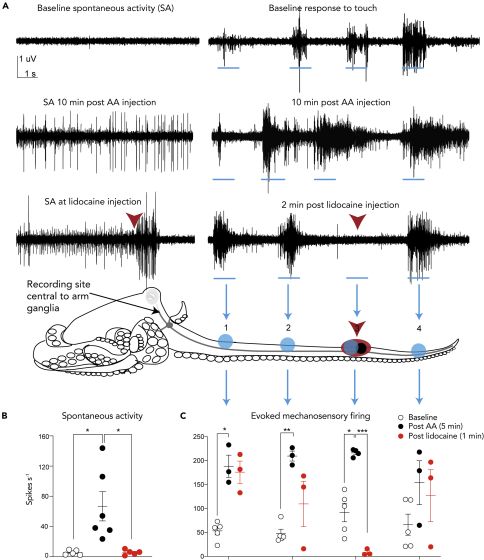It turns out that octopus has pain sensation & emotions that dislike pain

In recent years, many
Behavioral and neurophysiological evidence suggests affective pain experience in octopus: iScience
https://www.cell.com/iscience/fulltext/S2589-0042 (21) 00197-8
Octopuses Not Only Feel Pain Physically, But Emotionally Too, First Study Finds
https://www.sciencealert.com/scientists-identify-the-first-strong-evidence-that-octopuses-likely-feel-pain
In the past, it was thought that 'a complex neural structure is required to feel pain', so the general idea was that 'fish and invertebrates that do not have a complex neural structure do not feel pain'. .. However, recent research has revealed that fish respond in a 'painful' manner, and the idea that 'fish are also in pain' is spreading among researchers.
The view that 'fish are also in pain' is spreading among researchers --GIGAZINE

However, little research has been done on hyperalgesia for organisms with simple neural structures such as invertebrates. Therefore, Mr. Cloak conducted an experiment to confirm the presence or absence of pain sensation using an octopus with a relatively complicated neural structure in invertebrates.
Mr. Cloak prepared a water tank divided into two rooms, a 'room to administer nothing' and a 'room to administer something'. Since it has been confirmed that the octopus can consciously distinguish the pattern, each room has a characteristic pattern on the wall that can be used to determine which room the octopus is in.
The octopus used in the experiment is first placed in a water tank and acclimatized for a certain period of time, and then separated into one of the rooms by a partition. After that, I injected the octopus with 'acetic acid,' which is said to stimulate pain sensation only when I was in the 'room where something was administered.'
As a result, it turned out that the acetic acid-poured octopus learned the aquarium wallpaper and then avoided similar wallpapers. A tendency to 'dislike acetic acid' was confirmed. On the other hand, in a control experiment in which 'saline' was administered, such behavior was not confirmed, suggesting that 'avoid acetic acid that stimulates pain sensation'.

In addition to this experiment, the use of anesthetics confirmed whether octopuses 'prefer to relieve pain with anesthesia.' As a result of administering an anesthetic after the administration of acetic acid using a similar aquarium, it was found that the octopus came to prefer the wallpaper when the anesthetic was administered. It was suggested that 'I like to relieve pain', that is, 'I have a feeling of dislike pain'.
The result of the experiment looks like this. From the left, the horizontal axis is 'Saline paired', 'Asia paired', 'Analgesic control after saline administration', and 'Analgesic control'. 'Analgesic paired' after administration, the vertical axis shows the number of times the positive number moved to 'the room to administer something', and the negative number moved to 'the room to administer nothing'. Indicates the number of times. The results show that acetic acid-treated octopuses now avoid the acetic acid-treated room, and acetic acid-treated octopuses (pain-relieved) are treated with anesthetic. You can see the tendency to prefer the room.

In addition, Mr. Crook said that the octopus was 'group (S) with saline and no anesthetic', 'group with acetic acid and no anesthetic (AA)', 'group with acetic acid and anesthetic'. The group was divided into 4 groups, 'Group (L) to administer physiological saline and group (LC) to administer anesthetic', and the behavior was observed 24 hours after administration. As a result, in the 'group with acetic acid and no anesthetic' (AA), it was confirmed that the beak bites the site and scrapes off a part of the epidermis.

In addition, an electrophysiological study revealed that acetic acid-administered octopus responded in some way, and that administration of an anesthetic suppressed that response.

'It was suggested that octopuses have a sense of pain, and octopuses tend to dislike pain and seek relief,' Cloak said. Claims to have feelings.
It is also known that squid, which is an invertebrate like octopus, has the same self-control as humans. 'The findings of octopus pain and squid self-control provide new insights into animal emotions, and at the same time raise ethical issues,' said
It turns out that squid has self-control, the first invertebrate-GIGAZINE

Related Posts:







